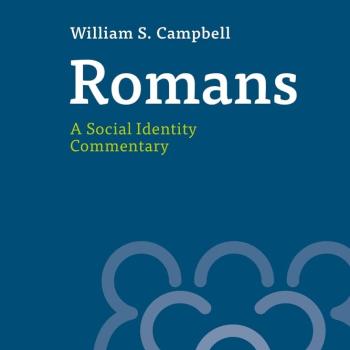Moving on to Rom. 12-15, Campbell rightly notes that Rom. 12-15 rather than being a grab bag of instructions that are unrelated to what goes before says rather they are the implications of Rom. 1-11 and the culmination of his arguments. I agree. Campbell suggests that 12.1-2 is the reversal of the note about false worship in 1.16-17 i.e. idolatry. He adds that Paul sees these Gentile Christians as the body of Christ, a corporate entity paralleling Israel. The problem... Read more








